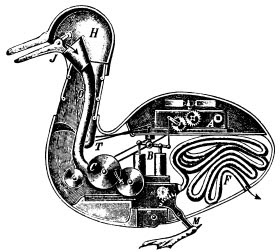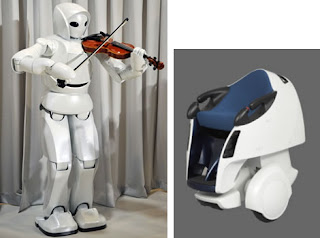
Today, I came home and was pleasantly surprised to see that there were a few articles featuring robotics in the May 2010 issue of Discover Magazine. One in particular caught my eye, "Machine Dreams". Discover Magazine's editor in chief, Corey S. Powell, moderated a discussion between four roboticists: Robin Murphy of Texas A&M, Red Whittaker of Carnegie Mellon, Javier Movellan of U.C. San Diego, and Rodney Brooks of MIT; concerning different areas of robotics.
One question that was posed to Rodney Brooks, founder of iRobot (which makes the Roomba), was "...you've talked about four goals that robot researchers should be aiming for. What are they?" In essense, his response was that they should aim to create robots that have:
1) "...the object recognition capabilities of a two-year-old child", as in being able to recognize that two different objects are still the same type of thing (their example was that two different chairs are still both chairs)
2) "...the language capabilities of a four-year-old child"
3) "...the manual dexterity of a six-year-old child" (ie. the ability to tie shoes)
4) "...the social understanding of an eight or nine-year-old child", the ability to take social cues from others
The panelists also spoke of how robots could be most beneficial to humans. One way that robots can be used is in space explortion. They don't have biological requirements (food, air, water, warmth) that humans have. Also, they are better suited to dangerous or lengthy missions than humans are. This could open up more possibilities of exploration in areas that humans would not be able to easily access (or access at all), like caves on the moon, the moons of outer planets, or even possibly further reaches of space beyond our own solar system.
Robots can also be used in other areas that could pose a threat to human survival, or cause harm to humans. For example, they are already being used for testing for explosives, search and rescue in floods, under deep rubble, and in low altitude fly overs in places with heavy tree cover.
Of course, their are a multitude of ways that robots can be useful to humans. They can assist in medical procedures, do manual labor, work on assembly lines, really the options are pretty much endless. Will they replace humans? In some areas, yes. Progress always requires a shift in the way that work is done though, and new jobs will likely open up in other areas as technology expands the horizons for what is possible.






